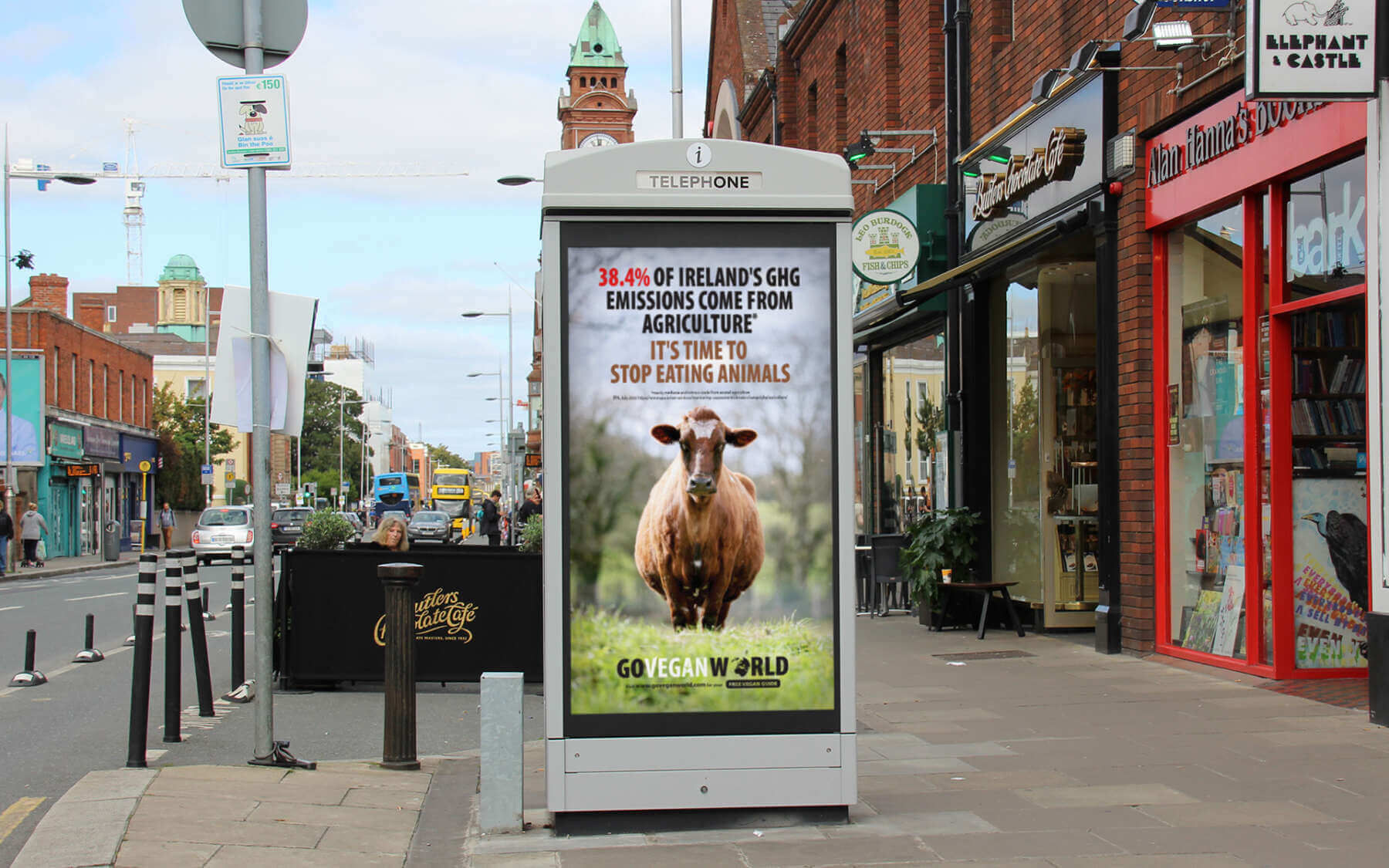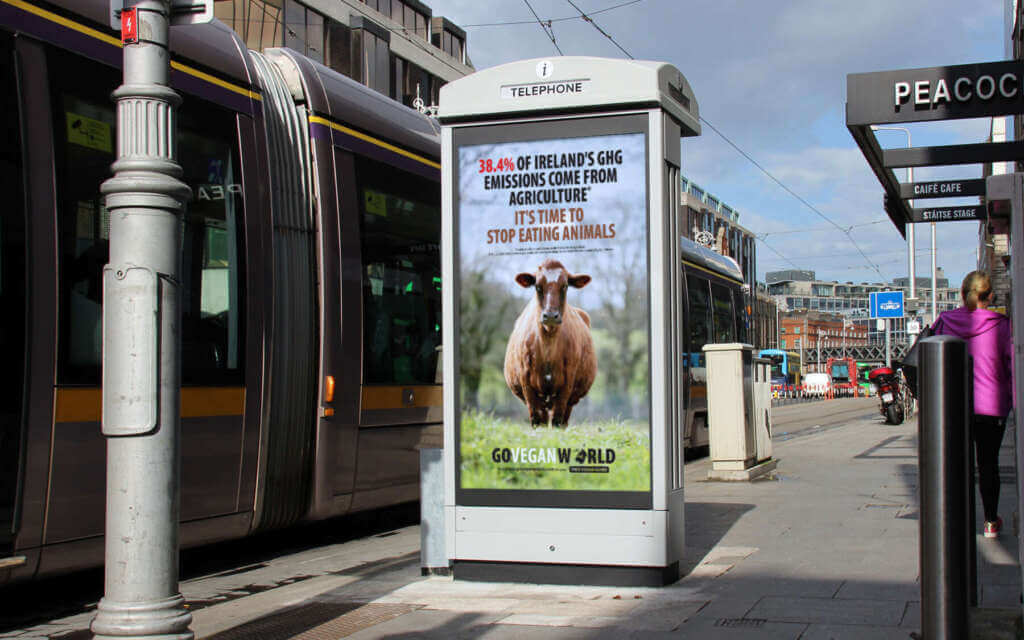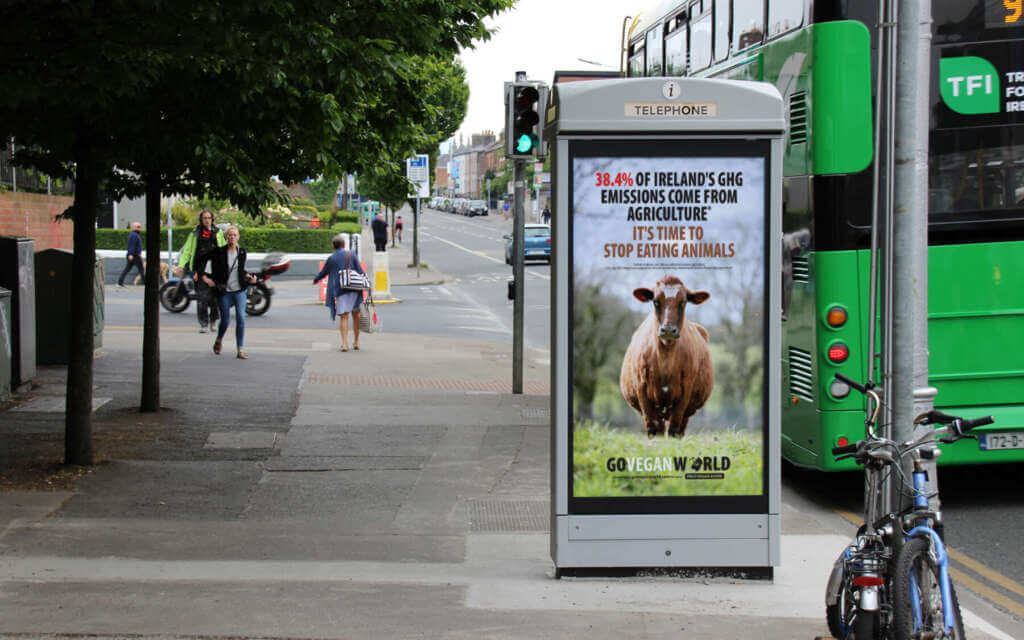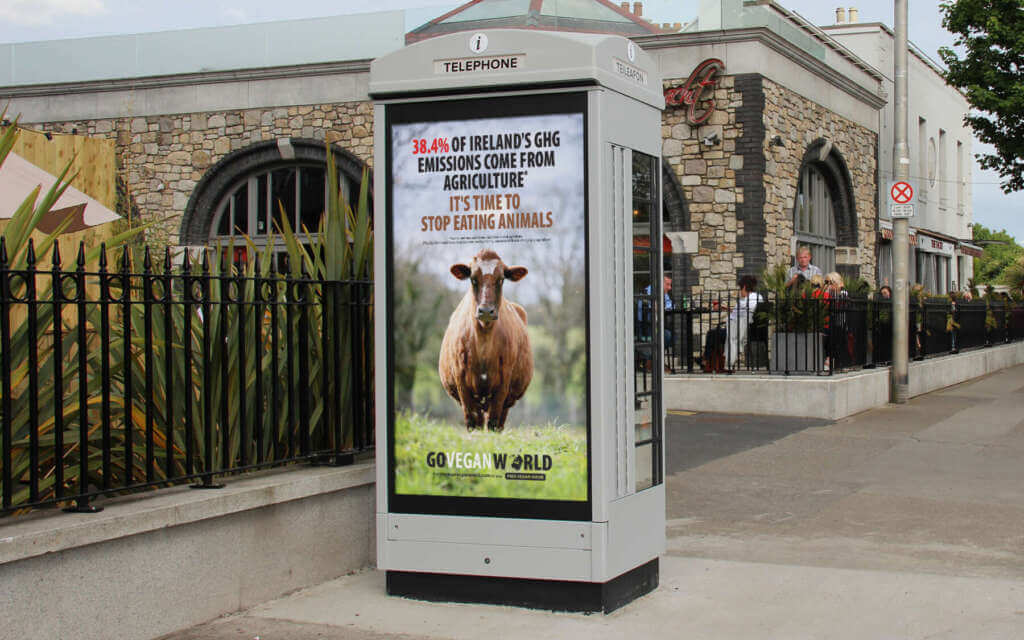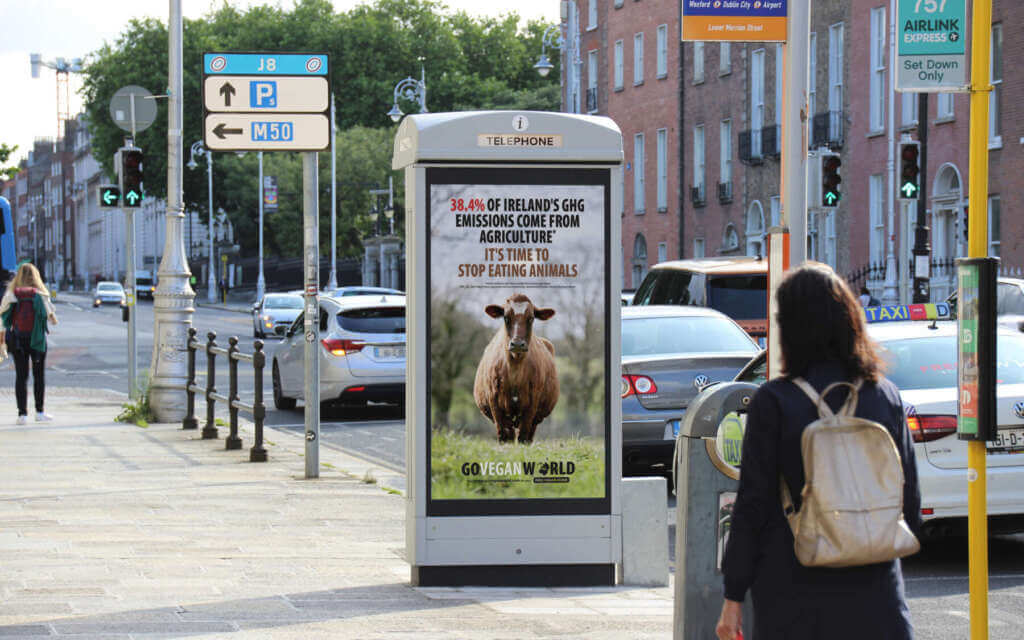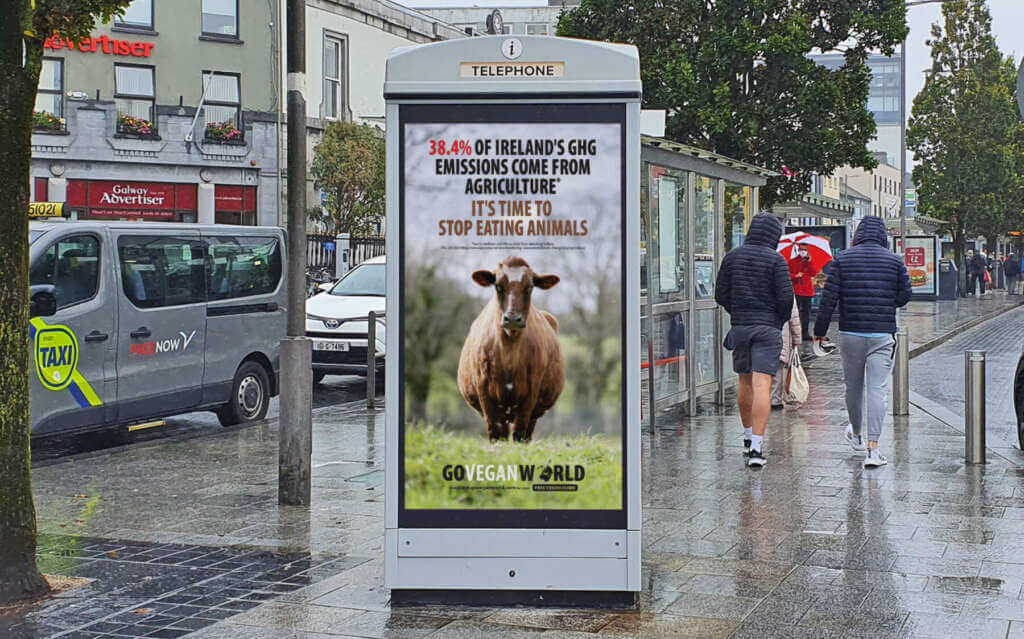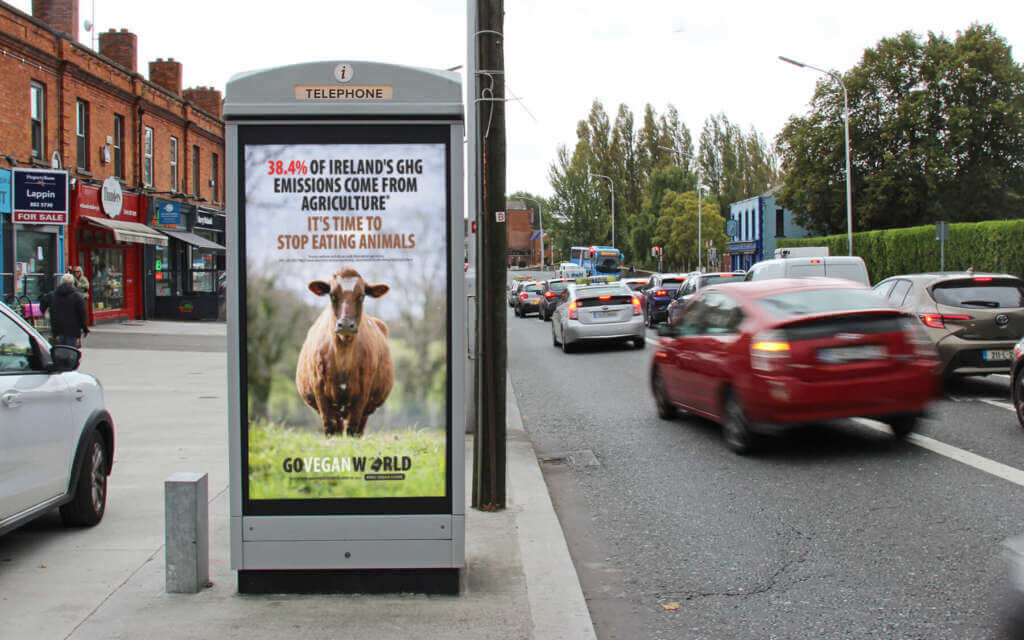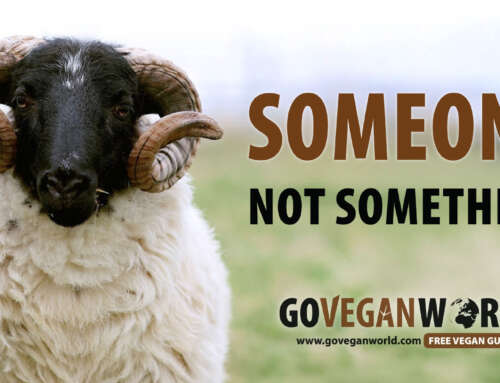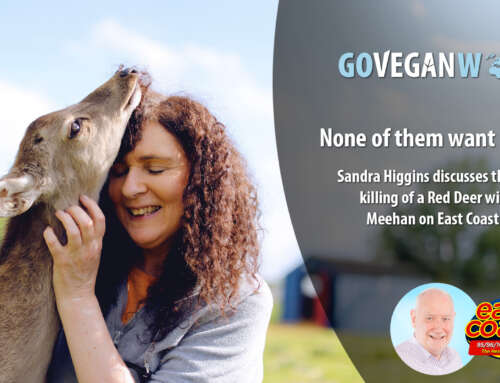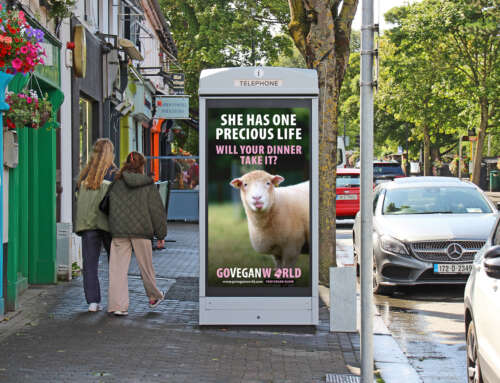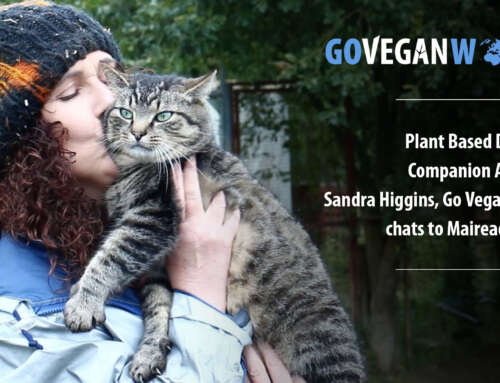15th August 2023
Our current campaign in Ireland reflects the updated statistics on the contribution of a non-vegan diet to Climate Chaos.
Every year, we witness increasingly devastating climate related disaster. Most of us bear witness on our television and computer screens; but some of us experience the trauma first hand. Its victims are human and non-human, and its cause is human behaviour. Few have not been moved by the wildfires in Hawaii this year.
In Ireland, in 2022, the Agriculture sector was the largest contributor to Greenhouse Gases (GHGs), directly responsible for 38.4% of national emissions, mainly methane from animal agriculture, and nitrous oxide due to the use of nitrogen fertiliser and manure management (EPA, July 2023). While that figure is astoundingly high, reflecting Ireland’s large focus on animal agriculture, the global average for diet related GHG emissions is also very high. The latest United Nations Food and Agriculture Organisation (FAO) data finds that 31 % of human-caused GHG emissions, originate from the world’s agri-food systems, with animal agriculture emitting significantly more GHGs, and causing more environmental destruction, than growing plants for human consumption.
The dietary impact of someone eating a 100% plant based diet is 25.1% that of someone eating a diet containing animal flesh and other animal products for GHG emisssions, 25.1% for land use, 46.4% for water use, 27% for eutrophication and 34.3% for biodiversity (Scarborough et al, 2023). The facts speak for themselves.
As long as non-vegans demand animal products in their diets, farmers will continue farming animals and contributing to climate chaos and other forms of destruction of the earth we depend on for our survival. Animal products are unnecessary for human health. If we transitioned to plant-based consumption and production, we would remove one of the most significant contributors to climate change, loss of biodiversity, and environmental destruction.
Most of us do not have the wherewithall to change how we heat our homes or travel to work. But almost all of us control what we eat. Three times a day, we can choose to eat a plant-based meal that is nutritionally balanced, beneficial to our health, environmentally friendly, sustainable and ethical, or we can choose to consume animal products that contribute to climate chaos, environmental destruction, loss of biodiversity, untold animal and human suffering and rights violations. Yet, dietary change is the least promoted human behavioural change advocated by those responsible for public education on climate change. Efforts at educating the public on the many benefits of plant-based consumption are targeted and cancelled by those with vested interests in animal exploitation. Go Vegan World has struggled, since its inception to run an educational campaign that is evidence based and in the public interest. Our ads have been torn down from the streets and been subject to criticism in Dail Eireann with demands for advertising agencies to refuse to publish our ads, with some of them promptly bowing to a bullying industry despite that accuracy of the ads and the fact that members of the public have a right to access to those facts and a responsibility to act on the information they see.
Farming is not only an underestimated and significant contributor to climate change; it is significantly impacted by it. In many parts of the world, it is becoming impossible to grow food because of weather conditions. Even in the Western World, we are precariously close to having insufficient food to feed farmed animals next winter. Ireland has had the wettest July on record. Farmers were able to make hay during the good weather in early Summer, but for many, the growth was not sufficient to make hay in the quantities necessary to support the animal agriculture industry in this country. The price and availability of grain will also be a problem this year. All told, the viability of animal agriculture is under threat. The very food production system lauded by our Government officials and representatives of the farming industry, is both the greatest cause of climate change in this country, and the most vulnerable to its impacts. If farming organisations had farmers’ interests at heart, they would support them to transition to ethical, non-animal alternatives. If our political system cared about its citizens, it would instigate a complete and rapid transition to plant-based consumption and production.
At the micro-level, what we eat is important not least because animal agriculture is wasteful, unnecessary and unsustainable. But at a macro-level, veganism and anti-speciesism, and the changes in human thinking they are predicated on, are essential. We regard the planet that sustains us as a resource that we can plunder unthinkingly. We think of other animals as our inferiors, as our resources, as commodities whose entire lives are of secondary importantance to our tastes and whims. It is these thought patterns that guide our behaviour and have caused the current problem of climate chaos that has brought our species and our world to the brink of collapse. Until we change the thoughts that guide our behaviour and recognise other animals as rights bearers who are as entitled to the resources of this planet as we are, the chaos we are experiencing will continue. Sooner or later it will touch all of our lives and we will ask why someone didn’t warn us in time for us to act to prevent it.
Our current campaign is live in Dublin, Waterford and Galway, with more locations in two weeks time. The campaign will run for one month and features Red*, who has lived at Eden Farmed Animal Sanctuary since she was rescued from the dairy industry.
*Photo credit Agatha Kisiel Photography
References:
Bryant, Christopher J. (2022) Plant-based animal product alternatives are healthier and more environmentally sustainable than animal products, Future Foods, Volume 6, 2022, 100174, ISSN 2666-8335. https://www.sciencedirect.com/science/article/pii/S2666833522000612 (Accessed 15/08/2023)
Hubris among farmers sets them against the laws of nature, Daniel Murray, Irish Business Post, 29th July 2023.
Farmers’ denial of climate reality has been shaped by the parties they support, Fintan O’Toole, Irish Times, 8th August 2023 (Please note the statistics in this article are from Teagasc and are not up to date. Please look at the EPA website for updated statistics.
Poore, J. & Nemecek, T. Reducing food’s environmental impacts through producers and consumers. Science 360, 987–992 (2018).
Scarborough, P., Clark, M., Cobiac, L. et al. Vegans, vegetarians, fish-eaters and meat-eaters in the UK show discrepant environmental impacts. Nat Food 4, 565–574 (2023). https://doi.org/10.1038/s43016-023-00795-w
Springmann M, Spajic L, Clark M A, Poore J, Herforth A, Webb P et al. (2020) The healthiness and sustainability of national and global food based dietary guidelines: modelling study BMJ 2020; 370 :m2322 doi:10.1136/bmj.m2322. https://www.bmj.com/content/370/bmj.m2322 (Accessed 15/08/2023)

